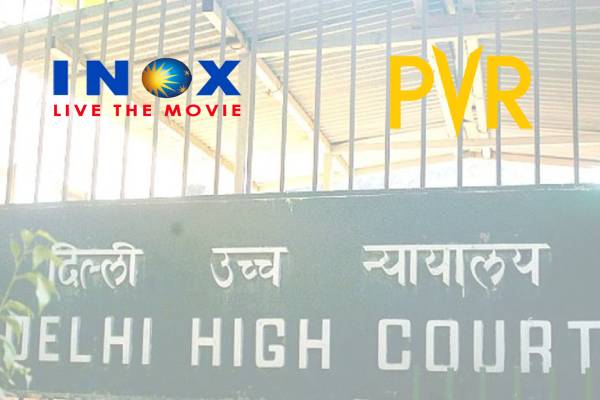May 20, 2020
Delhi HC slaps a fine of Rs. 5 lakhs on INOX for judicial adventurism in a suit against PVR
[ by Legal Era News Network ]
A single bench Judge of Delhi High Court Rajiv Sahai Endlaw imposed a fine of Rs. 5 lakhs on INOX Leisure Limited (INOX) for judicial adventurism after it filed a suit against PVR Limited (PVR).
According to INOX which is in the business of running and operating multiplex cinemas across India, INOX had binding contracts with the developer/owner of properties at Amritsar and Juhu, Mumbai and which contracts were breached/broken or were threatened to breached/broken, by the developer/owner of the said properties, at the instance of PVR.
INOX (Plaintiff) moved the Delhi High Court seeking permanent injunction to restrain PVR (Defendant) from entering into any agreement or arrangement with any third party in relation to any right/interest of PVR with respect to non-functional properties across India i.e. where an agreement/arrangement for grant of property rights to the INOX has been executed but multiplex operations have not commenced; and for recovering damages of Rs. 2.25 lakhs.
In the suit, the Plaintiff sought to restrain the Defendant from breaching any contracts with respect to other properties where the plaintiff has existing contracts or may have contracts in future.
The Defendant argued that as per the documents filed by the Plaintiff, the term sheet had lapsed and the developer (in Amritsar) had refunded the security deposit received from the Plaintiff. Further, the Plaintiff accepted the said refund without any demur and therefore there was no binding contract between the Plaintiff and the developer with respect to the property at Amritsar.
The Defendant also contended that the relief of injunction claimed in the suit is barred by Sections 41(e) and (j) of the Specific Relief Act.
The Delhi High Court held that the plaintiff, without any demur accepted refund of the security deposit paid with respect to the Amritsar property, signifying its acceptance of the termination of the arrangement.
Further, the Court held that the developers/owners of the properties at Amritsar and Juhu (Mumbai) were necessary parties to the suit. Justice Rajiv Sahai Endlaw said, “The said parties were necessary parties to the suit considering the nature thereof and the plaintiff cannot hide behind the plea of the Court being always entitled to implead any party; the Court once finds the necessary party and in whose absence there can be no adjudication, to have been not impleaded, is not required to do the work of the plaintiff and has no option but to dismiss the suit; the reliefs claimed with respect to other properties across India are indeed vague and there can be no general injunction as sought.”
The Court observed, “The claim of the plaintiff herein is to monopolize land and buildings thereon, across India, and just like agricultural produce was held to be natural resource, so is land a natural resource. Moreover yet another directive principle is, that the operation of the economic system does not result in the concentration of wealth and means of production to the common detriment and the monopoly sought to be created by the plaintiff by seeking the injunction in this suit, to exclude the defendant from its forays to procure real estate for its business across India, would be against the said directive principle of State Policy.”
The Court reiterated that the grant of injunction as claimed by the plaintiff on the premise of the actions of the defendant comprising a tortious act of interference with contractual relations of the plaintiff, would be in violation of the fundamental right of the defendant, its promoters and directors to carry on trade and business, without any law having been enacted by the State in this respect in the interest of general public, within the meaning of Article 19 (5) of the Constitution of India.
The Court held that the plaintiff had no cause of action for the relief claimed against the defendant and the relief claimed by the plaintiff against the defendant is barred by law. The Court therefore dismissed the suit and held that the plaintiff indulged in judicial adventurism, and therefore levied a fine of Rs.5 lakhs payable to the defendant within 90 days.
View Full Judgment Read More
